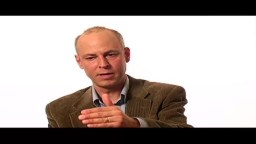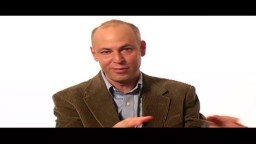David Shenk
Author
David Shenk is the national bestselling author of five previous books, including "The Forgetting," "Data Smog," and "The Immortal Game." He is a correspondent for TheAtlantic.com, and has contributed to National Geographic, Slate, The New York Times, Gourmet, Harper's, The New Yorker, NPR, and PBS. His new book, "The Genius in All of Us," will be published by Doubleday in March 2010.
David Shenk: I think the really dangerous and oppressive myth of IQ is that IQ tests are identifying some kind of quantity of intelligence that we are born with and that we have this static amount of intelligence that we’re going to carry with us throughout life.
Kids might be immensely great at something, but they’re never performing at a great adult level.
There is a large group of child prodigies who go on to a life of relative mediocrity.
The difference in personalities between people who get good at stuff or get great at stuff is the people who get great at stuff really find satisfaction in the constant pushing process.
A parent who wants their child to be great at something, absolutely cannot put love out there as a reward.
The old notion of giftedness, the notion that we are born with a certain quantity of intelligence or a quantity of talent really isn’t there.
You just absolutely cannot separate the affects of genes from the affects of the environment, so all we can do is identify the resources that we have in our environments and maximize them as best we can.
David Shenk: I don’t think it’s really important to make a dividing line to try to figure out when you’ve crossed over into genius.
His book is called “The Genius in All of Us.” But do any men or women of brilliance hold special fascination for David Shenk?
▸
4 min
—
with
The sheer plasticity of the brain often contradicts our ideas about what we “can” or “can’t” do.
▸
2 min
—
with
There’s nothing wrong with intelligence tests, says David Shenk. It’s our misinterpretations of their results that foster a dangerous “myth of IQ.”
▸
4 min
—
with
“Fail better,” Beckett advised. David Shenk affirms that it’s not just persistence that produces brilliance—it’s persistence at a skill level beyond one’s own.
▸
3 min
—
with
Thanks to teaching methods such as the Suzuki school, “child prodigies” are more common than ever, yet most still peak early. How can parents help kids make the most of […]
▸
5 min
—
with
The astonishing skills displayed by autistic savants are evidence not of the mystery and rarity of genius, but of the plasticity of the ordinary human mind.
▸
3 min
—
with
Genes and environment don’t determine different quantities of our success (or failure). Instead, they operate together in surprising and complex ways.
▸
4 min
—
with
A conversation with the author of “The Genius in All of Us.”
▸
25 min
—
with















